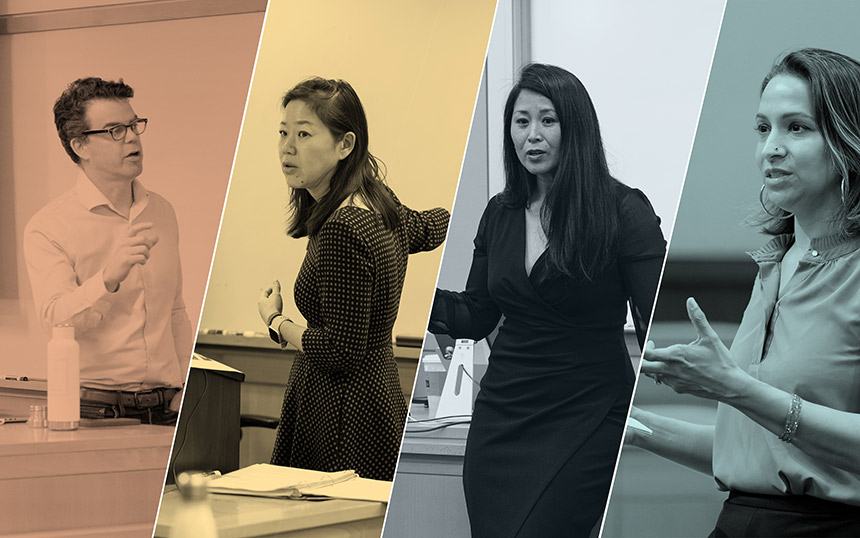
By Gwyneth K. Shaw
Lecturer Hermine Wong has worked at the intersection of technology and law for more than a decade, moving from the U.S. Securities and Exchange Commission to the cryptocurrency titan Coinbase before hanging out her own shingle as a strategist last year.
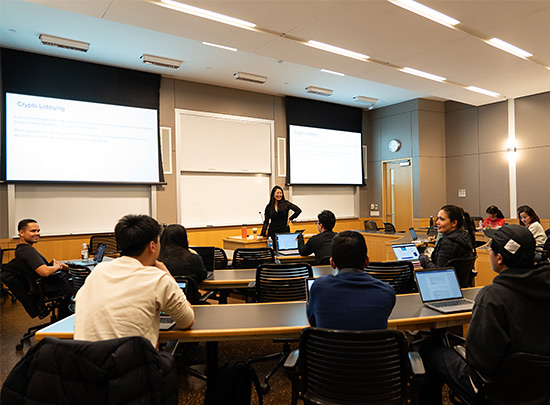
This semester, she’s bringing her extensive expertise to a Berkley Law classroom and teaching a brand-new course, Regulation and Policy of Crypto and web3. Wong and her students are examining the legal frameworks governing cryptocurrency and web3 — which promises to use blockchain technology to rejigger who the web works for — as well as some of the possible regulatory solutions for these burgeoning sectors.
Wong, whose background is on the policy side of the tech realm, sees the class as a great introduction for students who are considering going in-house in emerging tech or working for legislators and other public officials.
“Learning to successfully counsel disruptive and emerging tech companies, such as in crypto and web3, is still a relatively nascent skill set,” she says. “The novelty of this skill set lies not merely in the unprecedented pace of the industry, but also in the opacity of whether and how the laws should apply to it. This is not a skill set we learn in the courtroom, or by negotiating with opposing counsel.
“The ability to shape the legal landscape is developed in front of legislators, regulators, media, and the general public.”
Wong’s class is one of more than 20 new courses being offered this spring, a robust and diverse slate covering a wide spectrum of the legal landscape.
A rich range
Many are taught by Berkeley Law’s full-time faculty, including Professor Kenneth A. Bamberger’s Jewish Law course; Empirical Methods for Lawyers, with Professor Adam Badawi J.D.’03, Ph.D. ’04; the Colloquium on Law and Geopolitics, with Professors Katerina Linos and Elena Chachko; The Law and Governance of Artificial Intelligence, with Professor Colleen Chien ’02; Professor José Argueta Funes’ Legal History Colloquium; and Work, Unions, and Intersectional Inequality with Professor Diana Reddy Ph.D. ’23.
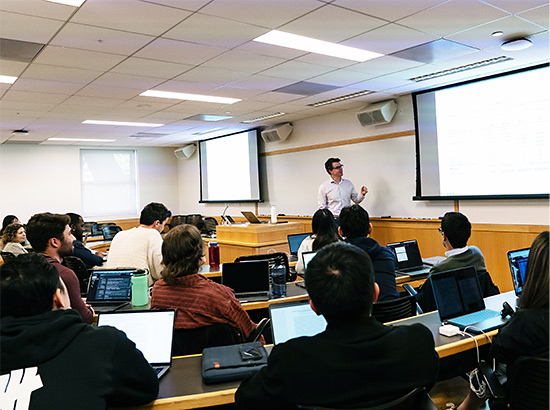
Other new courses are taught by some of the school’s deep roster of lecturers, who like Wong are bringing their practical experience to the classroom on cutting-edge topics. For example, Lecturer Timothy Perry ’06, a former federal prosecutor and official at California’s Office of Emergency Services, is teaching The Role of the Lawyer in Corporate Criminal Investigations. Lena Salaymeh leads the Islamic Law Seminar, the first time the topic has been offered in several years.
Managing Difficult Conversations, taught by Lecturer Mark LeHocky ’79, combines exercises and simulations with case studies and guest speakers — behavioral scientists, law firm leaders, government and corporate counsel — to help students learn how to handle tough moments in legal disputes, crises, and negotiations.
These new classes are just part of a record number of courses offered this spring, giving students a rich range of choices.
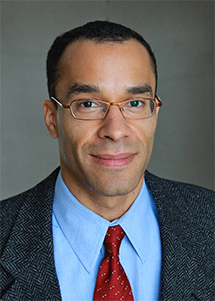
“Once again, the breadth of offerings at the law school is simply overwhelming — courses that did not exist when I was a law student, on topics that are relentlessly urgent, as well as core classes that remain critical to understanding current events,” Professor and Associate Dean for J.D. Curriculum and Teaching Jonathan D. Glater says. “As always, I am jealous of the students.”
New perspective
3L Chloe Pan took Professor Jonah Gelbach’s Public Access to Court Electronic Records course because she was interested in thinking about how courts operate as public institutions. Named for the online repository of more than 1 billion federal court records — commonly referred to with the PACER acronym — the course’s main focus is the legislative and litigation activity aimed at dropping the paywall for non-parties to access information.
“Law school classes typically focus on the substantive content of litigation, but there are fewer opportunities to examine how litigation is administered and how judicial procedures could be improved,” Pan says.
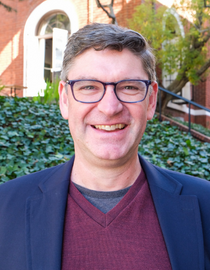
Gelbach’s past and current scholarship has outlined some downsides of the paywall, particularly its impact on researchers who want to look at trends in the judicial sector using aggregated data.
“Our courts have enormous amounts of data that could be used to better understand, operate, and design our judicial system, yet the data remains largely locked behind a paywall that stunts research and journalistic access,” he says. “I wanted to teach this course because I wanted to help students explore the arguments for and against reforming that situation.”
Pan says one of her favorite parts of the course has been discussing scholarship about the federal judiciary with academic titans from around the country, including Yale Law Professor Judith Resnik and Columbia Law Professor David Pozen. U.S. District Court Judge Robert M. Dow Jr. (Northern District of Illinois) — who, in his role as counselor to U.S. Chief Justice John Roberts, is effectively his top adviser about administration of the federal courts — brought the judiciary’s perspective.
Other speakers include transparency advocates Mike Lissner of the Free Law Project and Brian Carver, a project board member and lawyer at Google.
“It’s a great intersection of theory, policy, and practice, and it’s been especially insightful to hear from judges and legal experts who have been immersed in these issues for decades,” Pan says.
Learning at the cutting edge
Wong’s course held a similar appeal for Garima Kedia LL.M. ’24.
“As somebody who has worked at Coinbase and the SEC, it was expected that she would bring a wealth of knowledge and practical experience to every class,” she says.
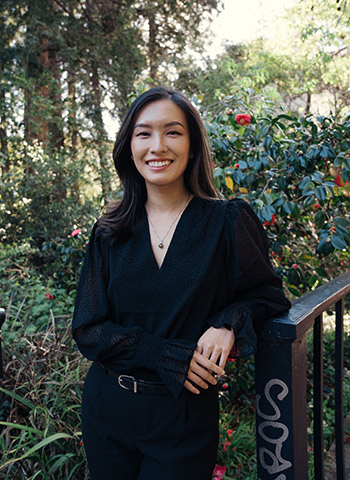
The assigned readings were highly relevant, Kedia says, and Wong encourages a robust discussion-based discourse in the class. The class’ chat with U.S. Department of Justice prosecutors who brought the fraud case against Sam Bankman-Fried gave students uncommon insights into a crypto-related case, she adds.
Wong’s ability to break down simple concepts and help students understand the technical concepts of crypto and trading platforms have also made the class very valuable, Kedia says.
“I think the most important takeaway was learning about the interplay of various laws and agencies combined that govern the crypto industry,” she says. “As part of our assignments, we drafted stakeholder comments and memos, which is typically how lawmaking works for a burgeoning field of industry like crypto.
“I think that was super helpful in terms of giving us a taste and introducing us to what stakeholders in this industry are typically faced with in terms of regulation and policy, and will be of use in practice as a lawyer.”
Wong is likewise impressed by her students, many of whom have taken multiple classes in the school’s extensive tech law curriculum and attended events or worked with some of the Bay Area’s top industry executives and practitioners.
“There is no better place to teach this than at Berkeley Law, where the students are already at ground zero for these industries,” she says.